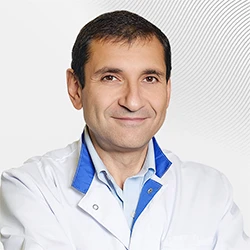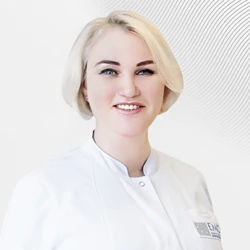Tells Irina Russ,
nutritionist, endocrinologist
 Quit smoking, eat more vegetables and fruits, find time for physical activity – these steps are available to everyone to help maintain health, slow down aging and prolong an active life.
Quit smoking, eat more vegetables and fruits, find time for physical activity – these steps are available to everyone to help maintain health, slow down aging and prolong an active life.If a person eats incorrectly, he ages faster. This is easy to explain: problems with digestion, metabolic processes, blood vessels, and nervous tissue instantly affect the well-being and condition of the skin. Diversify your diet, give preference to seasonal and natural products, and eat less – this is how we can protect our body and compensate for the effects of time. It is enough to follow a few simple rules.
- Choose natural products to meet the need for protein, calcium and other trace elements. As we age, bones become more brittle, which means that we will need foods rich in calcium, such as sesame seeds or cottage cheese. Fruits and vegetables contain a lot of antioxidants, they help us protect ourselves from cancer and preserve our mental abilities. In addition, berries, green tea, herbs and spices are useful, which contain antioxidants; legumes (lentils, soybeans, peas), rich in vegetable proteins and carbohydrates; nuts (hazelnuts, almonds, pistachios) – they contain not only antioxidants, but also omega-3 fatty acids. they have lost their useful properties, it is important that they undergo minimal heat treatment.
- Try to eat less: this reduces inflammatory processes in the body, which are one of the causes of oxidative stress, and hence cell aging. No wonder the daily diet of the main centenarians of the planet, the Japanese from the island of Okinawa, has only 1,500 calories! In addition, we eat to get energy, but as we age, energy consumption for movement decreases, which means that the volume of food and its caloric content should decrease. In addition, the food should be easily digestible. If it is impossible to reduce our diet by 25-30%, we can try to do without supplements, do not adhere at all costs to the formula "three-course lunch plus dessert" and listen to the advice of psychotherapist and nutrition specialist Gerard Apfeldorfer: eat your fill, but only when you are hungry.
- Reduce meat consumption – this way we reduce the risk of certain cancers (cancer of the rectum, pancreas, and possibly prostate). Neuropsychologist David Servan-Schreiber, author of the book "Anti-Cancer", suggests choosing poultry instead of beef, pork and lamb whenever possible, eating a small piece of meat with a plate of vegetable side dish rather than a large steak with a spoonful of vegetables and yielding to your carnivorous instincts no more than two or three times a week.
- But we don't eat enough fish, although fish rich in proteins and minerals is a dietary product low in cholesterol, which is good for our heart and blood vessels. Fish contains a large amount of proteins that are involved in cell construction and the synthesis of steroid hormones in our body. Special attention should be paid to salmon and trout, mackerel, herring and other types of small oily fish, as they are rich in essential omega-3 fatty acids. By including fish in our diet two to three times a week, we can halve the risk of developing Alzheimer's disease, heart attack, and impaired cerebral circulation, and omega-3 fatty acids are important for preventing cancer.
Was this information helpful?
Questions and answers
Ask a Question








.webp)



.webp)


.webp)


.webp)


.webp)
.webp)

.webp)

